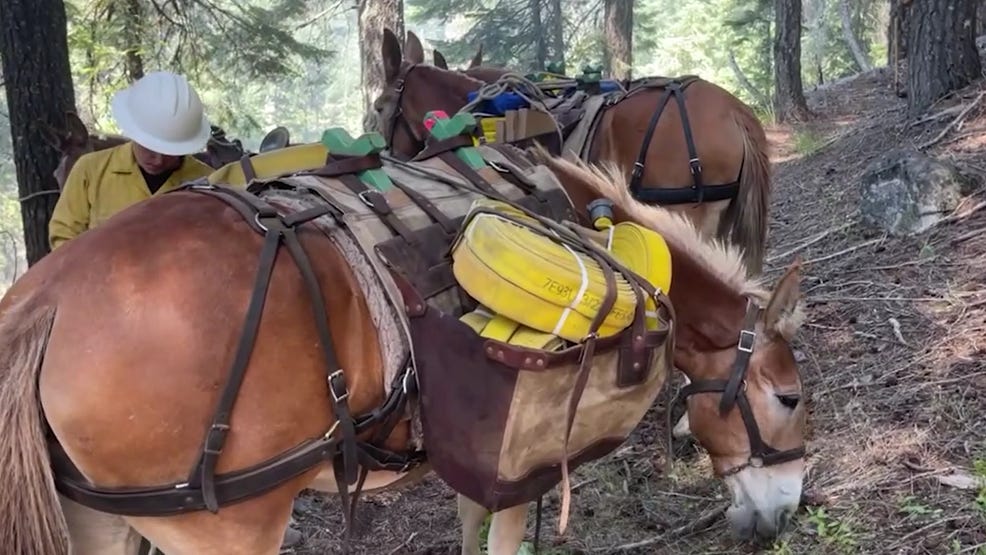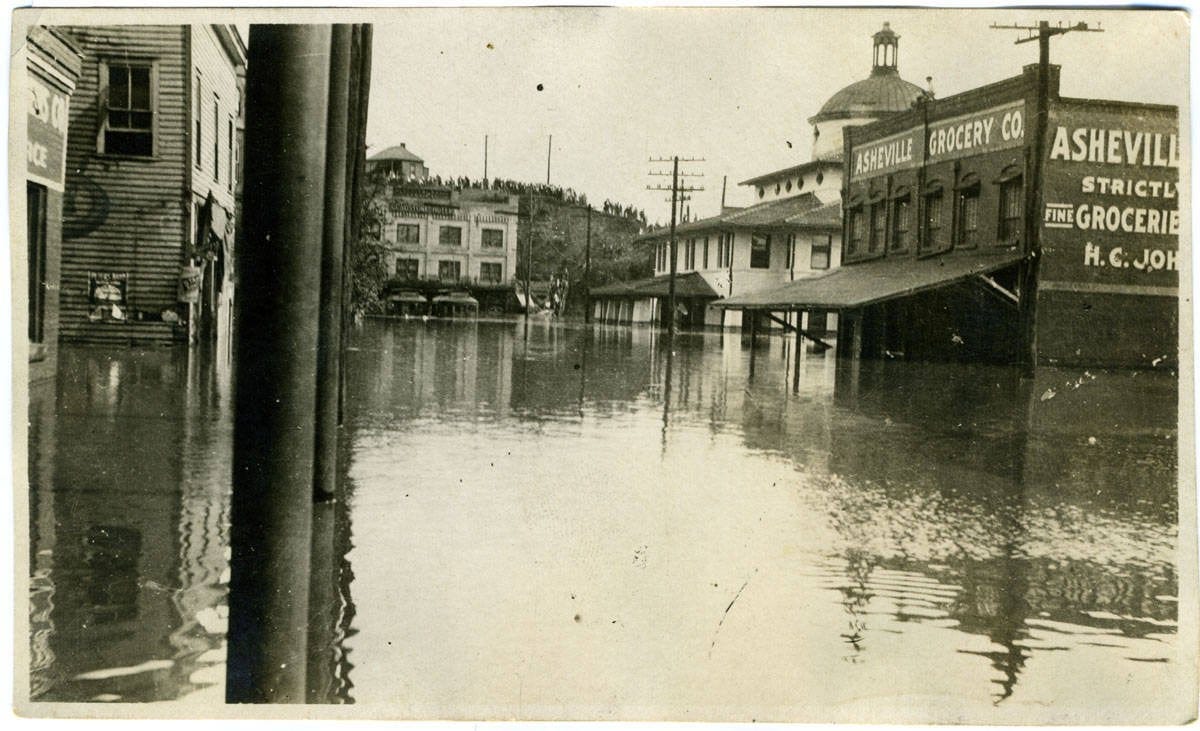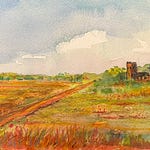
A Note on the President’s Visit and Our Song, “Where There’s a Will, There’s a Way”
This post and the accompanying song were written in the immediate aftermath of the storm, capturing the resilience and determination of the people of Western North Carolina. You’ll notice a reference to “we will remember in November,” a nod to the upcoming election at the time. Despite the catastrophic conditions, Western North Carolinians demonstrated their unyielding spirit by turning out to vote in record numbers and in overwhelming support for President Trump. The reference to a “fair-weather federali and FEMA predated the present conversations to overhaul the federal government’s emergency response agencies.
You might call it a caricature of grievances or perhaps a common man’s commentary. Either way, it’s called a folk song. Folk songs, in many cultures, signal a unique musical genre rooted in the heart of their respective peoples. However, the folk song takes on a slightly different character in America. It became the jester’s tool for poking at the king, figuratively and, sometimes, literally.
We are republishing this post in deep gratitude for the President’s visit to Western North Carolina, accompanied by a special folk song—Thank you, Sir—. We invite you to listen to a song that seeks to capture the resilience of mountain folk while expressing their sense of being forgotten. Please pray for those still hurting. Consider subscribing for free. Thank you. https://faithforliving.live/wnc-storm-song #WesternNC #FolkMusic
The American folk song has its roots in the discontent of English colonists. Some blacksmith or lawyer with a knack for poetry—and who could handle a stringed instrument—would offer his sharp-edged commentary for anyone willing to listen. It was usually truth, delivered with just the right dose of exaggeration. This is the caricature I mentioned. The playful exaggerations, the wordplay, and the longings expressed through sarcastic critique were all designed to give voice to the “folk.” In this way, the folk song mirrors the biting humor of American folk heroes like Mark Twain and Will Rogers. As the late Jerry Clower said, “Everything I say is true or could be true.” Well said, Jerry (as a young fellow, I used to sit at the lazy Susan table with the inimitable Mr. Jerry Clower in Magnolia, Mississippi, so I can call him “Jerry” if I want to). “That there” is just pure “folk” for you.
So, this song about the hurricanes and floods in Western North Carolina picks up on common complaints from the region. The current administration might have done its best, but for some, it felt like they arrived a week too late.
That’s why I wrote the song, echoing the sentiments I hear around me: “Those FEMA trucks were all parked when we already had mules and goats packing food and supplies up the mountain!” And so it goes. Yet, alongside the frustration, I wanted to capture the genuine gratitude people here feel for everyone who stepped up—FEMA workers, the North Carolina National Guard, the Air National Guard, and National Guard troops from other states, as well as the nonprofits and church groups that showed up in force. Samaritans Purse, in particular, was Johnny-on-the-spot.
So, if the line “The fair-weather Federali…” rubs you the wrong way, just know it’s reflecting the voices on the ground. The fine folks who work for the Federal Government are appreciated, but a folk song is, after all, a folk song. If you have to explain every poke and jab, it’s like trying to explain a joke—it just doesn’t work that way. Folk songs are about capturing raw emotion, and they often use caricature to do that.
This song is also meant to convey the depth of feeling experienced in times of disaster. As the chorus goes:
“We’re used to the rain, used to the snows,
Most everything else, as far as that goes,
But it broke our hearts when the flood waters rose
And it took all our towns away.”
If you’ve seen pictures of what’s left of Swannanoa, you’ll understand what I mean.
I hope you enjoy this latest tradition of “bellering” (bellowing) like an old, sick cow as I try to express the mix of feelings that I’ve heard and felt in this part of the country. It’s just a little folk song, but I hope it speaks to you. It is worth it if it gives someone in the tragedy a smile for just a few seconds.
Note:
For photographs and videos, thanks to:
The North Carolina Division of Archives and Records, Western Region Collection, Asheville, NC
(archives.ncdcr.gov)The Asheville Citizen-Times
(citizen-times.com)
Where There's a Will, There's a Way
(Words and Music © Michael Anthony Milton, Bethesda Music, BMI)
1
The fair-weather Federali
Are parked in their trucks in Raleigh
While the mules and the mountain goats
Climb up each day
Bringing food to our friends
Who are caught in the fray
Oh, what is that thing that they used to say?
Where there is a will, there’s a way.
2
A hurricane hit the mountains,
Those are words you just never say.
We’re used to the rain,
We’re used to the snows,
Most everything else, as far as that goes.
But it broke our hearts
When the flood waters rose
And took all our towns away.
3
I heard them yap,
"We have a new app,
And we won’t leave you alone."
But we don’t have a house,
Much less a phone.
If you can’t spare a dime,
Just throw us a bone.
We’re starting to doubt
There’s anyone home.
We’ll be sure to take note
In November.
4
Well, sometimes we’re known to beller,
Like an old cow in pain.
And the government boys say,
"Don’t you complain.
You’ll be alright and
We feel your pain.
We got migrants to feed
And a war in Ukraine.
We’ll get to you soon enough."
5
Well, the mountain folks
Aren’t as dumb as they say.
We get by on our own
Most every day.
A Tarheel won’t run
If you chase him away,
So we sure ain’t going nowhere.
6
The fair-weather Federali
Still parked in their trucks in Raleigh,
While the mules and the mountain goats
Climb up each day
Bringing food to our friends
Who are caught in the fray.
Oh, what is that thing that they used to say?
Where there is a will, there’s a way.
Oh, we appreciate y’all anyway.














Share this post